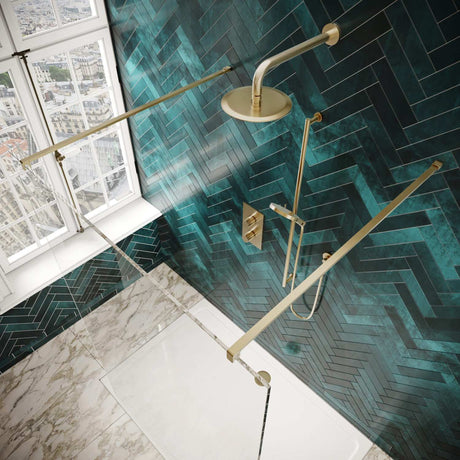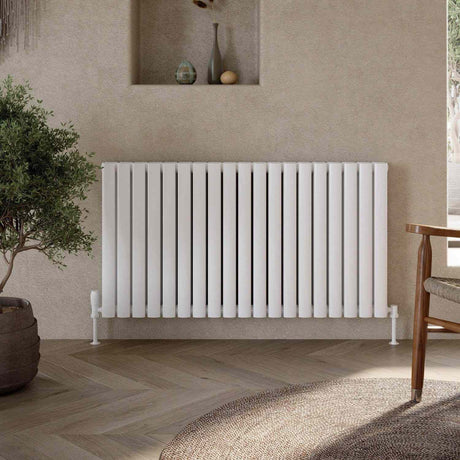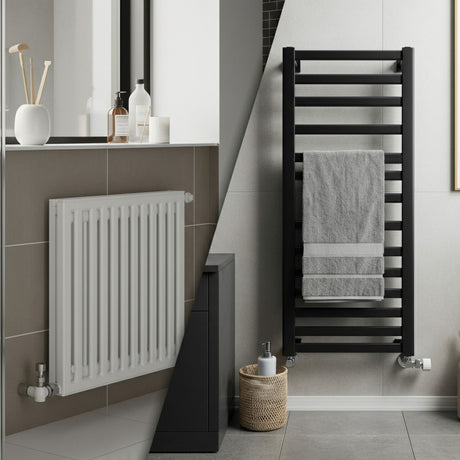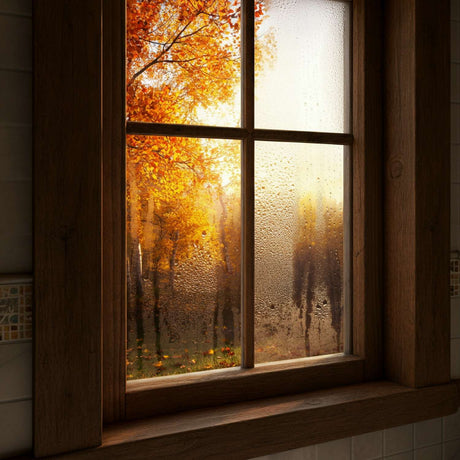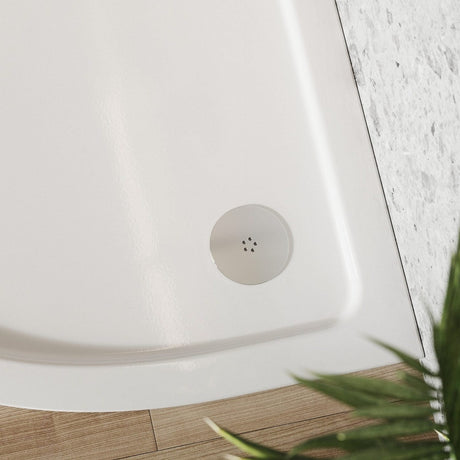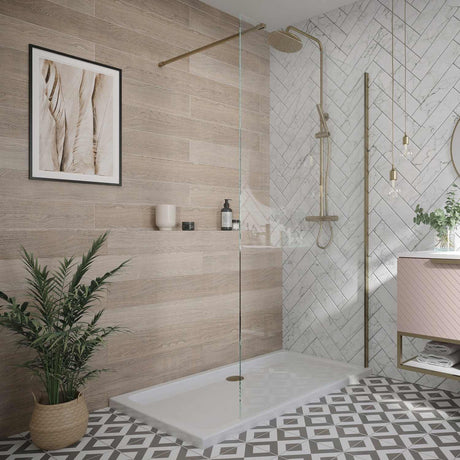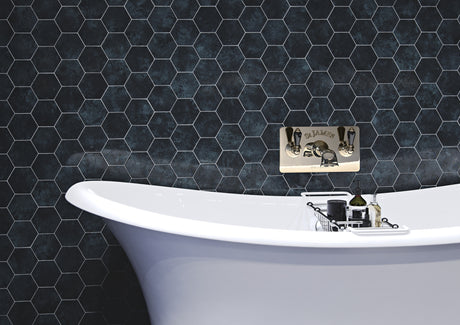Choosing the right shower for your bathroom can be a daunting task with so many options to consider. Two popular choices among homeowners are thermostatic showers and mixer showers, both offering unique benefits depending on your needs. This guide from Asturias Bathrooms will walk you through how these shower types work, their key differences, and how to decide which one is the right fit for your bathroom.
Introduction to Thermostatic and Mixer Showers
Thermostatic and mixer showers are highly regarded for their ability to provide consistent water temperature and a pleasant showering experience. Here's a quick definition of each before we dig deeper:
- Thermostatic Showers: Known for their advanced safety features, these showers regulate and maintain a steady water temperature. They are particularly suitable for families or households with varying water usage.
- Mixer Showers: These blend hot and cold water from your home's supply for a straightforward and efficient performance. They are admired for their simplicity and cost-effectiveness.
Both options have their place in modern bathrooms, but your choice will ultimately depend on your household needs, plumbing setup, and personal preferences.
How Thermostatic Showers Work
Thermostatic showers use advanced internal mechanisms to maintain a consistent water temperature, even when other taps or appliances are in use. This is made possible by key components such as:
- Thermostatic Element: This sensor detects changes in water temperature. If the hot water becomes too heated or the cold supply dips, the element adjusts the mix to ensure the water remains at your desired temperature.
- Piston: Acts as a balance mechanism, adjusting the flow of hot and cold water almost instantaneously to prevent temperature spikes or drops.
- Return Spring: Works alongside the piston, ensuring the system responds smoothly to changing water conditions.
- Safety Shut-Off: If either the hot or cold supply fails, thermostatic showers will shut off automatically to prevent scalding or freezing.
Compatibility with Boiler Systems
Thermostatic showers are versatile and work well with various plumbing systems, including combi boilers, mains-fed water systems, and gravity-fed systems. However, it's important to ensure that your water pressure is sufficient for optimal performance.
How Mixer Showers Work
Mixer showers operate by blending hot and cold water directly within the shower fitting before it reaches the showerhead. The process is simplified and relies on your home's plumbing to supply both hot and cold water at stable pressure levels.
Mixer showers are relatively straightforward, making them an attractive and affordable choice for many households.
Water Pressure Considerations
Mixer showers are compatible with both high- and low-pressure systems. However, for bathrooms with significant pressure variations between hot and cold supplies, a pressure-balanced mixer valve may be required to ensure an even water flow.
| Feature | Thermostatic Showers | Mixer Showers |
| Temperature Control | Maintains a consistent temperature, even with water usage elsewhere in the house. | Relies on steady pressure from your plumbing. Temperature may fluctuate if water pressure changes. |
| Safety Features | Equipped with automatic shut-off to prevent scalding or freezing. Ideal for families. | Lacks built-in safety features, making them less suitable for households with children or elderly members. |
| Installation Complexity | Requires professional calibration for optimal performance. | Simple to install; can be surface-mounted or concealed for a cleaner look. |
| Cost | Typically more expensive upfront due to advanced mechanisms. | More budget-friendly, though additional features may increase costs. |
Benefits of Thermostatic Showers
If safety and precision are priorities, a thermostatic shower is an excellent choice. Below are some of the standout benefits:
1. Temperature Consistency
Thermostatic showers ensure the temperature remains constant, so you'll never face a freezing shock or scalding surprise again.
2. Safe for Families
The safety shut-off feature adds peace of mind, making these showers ideal for households with children, elderly relatives, or anyone with reduced mobility. This is prominent in the Bristan Napoli Adjustable Thermostatic Rigid Riser Bar Shower in Chrome.
3. Luxury Feel
With options for digital controls and multiple settings, thermostatic showers deliver a premium, spa-like experience.
Benefits of Mixer Showers
For those seeking simplicity and affordability, a mixer shower offers several advantages:
1. Easy Installation
These showers are simpler to install and often more affordable. Surface-mounted mixers can even reduce installation time and cost.
2. Compatibility
Mixer showers work well across a range of water systems, including high- and low-pressure setups. They're ideal for households that want efficiency without extra features, such as the Bristan Quadrato Safe Touch Thermostatic Rigid Riser Bar Shower in Gunmetal.
3. Cost-Effective
Compared to thermostatic showers, mixers are an economical choice for those on a budget.
General Installation Tips
Both thermostatic and mixer showers require proper installation for peak performance. Here are some tips to help:
- Check Water Pressure: Ensure your water system provides adequate pressure for your chosen shower type.
- Plan for Positioning: Decide whether you want an exposed or concealed fitting based on your bathroom's aesthetic and space.
- Professional Help: While DIY installations may seem tempting, hiring a professional plumber can save you time and ensure proper setup.
- Routine Maintenance: Regularly clean filters and descale components to keep your shower running smoothly.
Frequently Asked Questions
Does a thermostatic shower need power?
No, most thermostatic showers rely on your home's hot and cold water supply rather than electricity. However, some digital models may require a power source for advanced features.
Are thermostatic shower valves universal?
Not quite. While many valves are compatible with standard plumbing systems, it's important to check specifications to ensure a good match with your home setup.
Why does my thermostatic shower not get hot?
This could be due to limescale buildup in the cartridge, a malfunctioning thermostat, or an issue with your hot water supply. Cleaning or replacing parts can usually resolve the problem.
Which is cheaper to run, an electric or mixer shower?
Electric Showers are more energy-efficient as they heat water on demand, whereas mixer showers rely on your boiler, which can be less economical depending on usage.
Finding the Right Shower for Your Home
Choosing between a thermostatic and mixer shower ultimately depends on your family's needs, budget, and water system. If safety, precision, and luxury are non-negotiable, a thermostatic shower is worth the investment. On the other hand, if you're after simplicity and affordability, the mixer shower provides excellent value.
Take the first step towards a better showering experience today. Browse our shower collection now and find the perfect addition to your bathroom. Refresh your mornings hassle-free!








